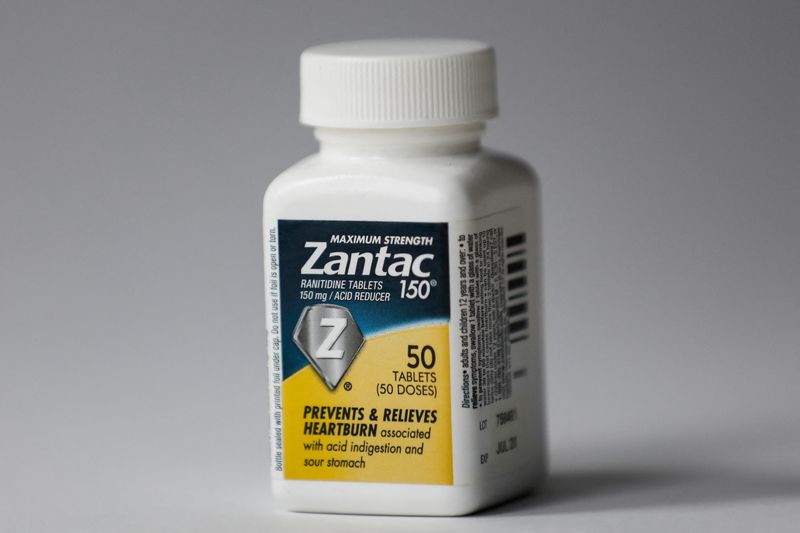By Maggie Fick and Yamini Kalia
(Reuters) -GSK shares jumped as much as 6.5% on Thursday after the British drugmaker struck a $2.2 billion settlement over U.S. lawsuits that alleged its discontinued heartburn drug Zantac caused cancer.
The deal, announced on Wednesday, was far lower than many analysts and investors had expected, including JP Morgan's projection of $3.5 billion. Barclays analysts described it as a "best case scenario in terms of aggregate settlement".
The deal resolves 80,000, or 93%, of the pending cases against the company in the United States. Analysts at Jefferies and elsewhere said the news removed most of the overhang on the stock from the issue, which has dogged GSK for over two years.
"The settlement of $2.2 billion is lower than market expectations of $3.5 billion, and the announcement came sooner than expected. The Zantac clouds are lifting, and GSK will likely resolve the few remaining cases quickly," said Lucy Coutts, investment director at wealth management firm JM Finn, which holds GSK shares.
"Importantly, its core earnings are unaffected so investors can now focus on GSK delivering on its late-stage pipeline", Coutts told Reuters.
Concerns about lawsuits and potential compensation wiped almost $40 billion off the combined market values of GSK, Sanofi (NASDAQ:SNY), Pfizer (NYSE:PFE) and Haleon, which all also sold the drug, over roughly a week in August 2022.
GSK shares were the top gainers on the FTSE benchmark index on Thursday and on track for their best one-day percentage gain since December 2022.
The company will also pay $70 million to settle a related whistleblower lawsuit filed by a Connecticut laboratory.
GSK admitted no wrongdoing or liability in the settlements, and said they were in the best long-term interest of the company to avoid the risk of continuing litigation.
The company expects to record a 1.8 billion pound ($2.4 billion) charge in its third quarter results due to the settlements, with no impact seen on its investment plans.
It will announce third quarter results on Oct. 30.
First approved by U.S. regulators in 1983, Zantac became the world's best-selling medicine in 1988 and one of the first to top $1 billion in annual sales. The drug was sold at different times by GSK, Pfizer, Sanofi and Boehringer Ingelheim.

Ranitidine, which was sold under the Zantac brand name, was pulled off the market in 2020 on concerns it could degrade into NDMA, a carcinogen, over time or when exposed to heat. The recall triggered a spate of lawsuits.
($1 = 0.7642 pounds)